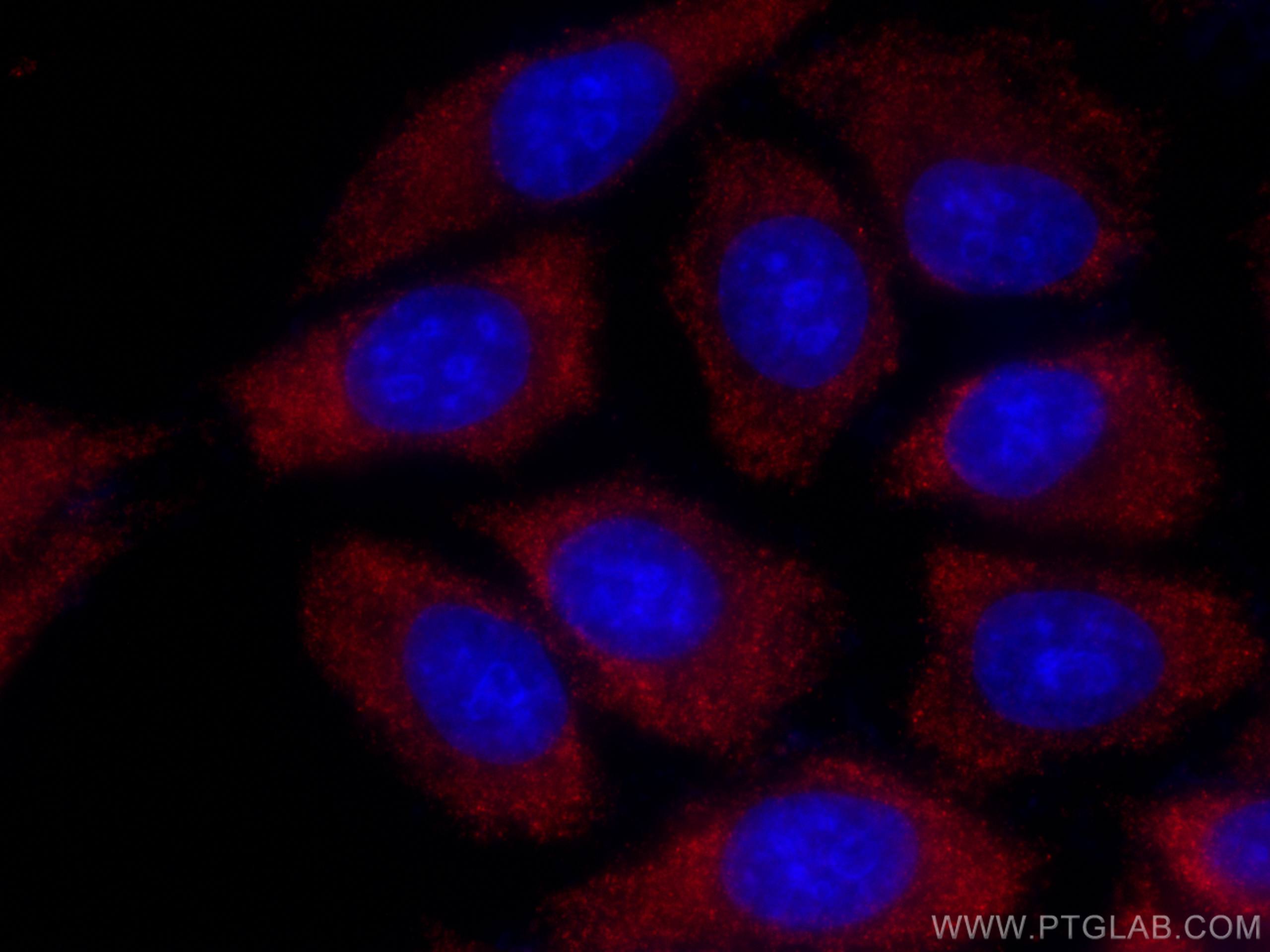PLCL2 Monoklonaler Antikörper
PLCL2 Monoklonal Antikörper für IF/ICC
Wirt / Isotyp
Maus / IgG1
Getestete Reaktivität
Hausschwein, human, Maus, Ratte
Anwendung
IF/ICC
Konjugation
CoraLite®594 Fluorescent Dye
CloneNo.
1C8A4
Kat-Nr. : CL594-67471
Synonyme
Geprüfte Anwendungen
| Erfolgreiche Detektion in IF/ICC | HepG2-Zellen |
Empfohlene Verdünnung
| Anwendung | Verdünnung |
|---|---|
| Immunfluoreszenz (IF)/ICC | IF/ICC : 1:50-1:500 |
| It is recommended that this reagent should be titrated in each testing system to obtain optimal results. | |
| Sample-dependent, check data in validation data gallery | |
Produktinformation
CL594-67471 bindet in IF/ICC PLCL2 und zeigt Reaktivität mit Hausschwein, human, Maus, Ratten
| Getestete Reaktivität | Hausschwein, human, Maus, Ratte |
| Wirt / Isotyp | Maus / IgG1 |
| Klonalität | Monoklonal |
| Typ | Antikörper |
| Immunogen | PLCL2 fusion protein Ag11461 |
| Vollständiger Name | phospholipase C-like 2 |
| Berechnetes Molekulargewicht | 126 kDa |
| Beobachtetes Molekulargewicht | 126 kDa |
| GenBank-Zugangsnummer | BC036392 |
| Gene symbol | PLCL2 |
| Gene ID (NCBI) | 23228 |
| Konjugation | CoraLite®594 Fluorescent Dye |
| Excitation/Emission maxima wavelengths | 588 nm / 604 nm |
| Form | Liquid |
| Reinigungsmethode | Protein-G-Reinigung |
| Lagerungspuffer | PBS with 50% glycerol, 0.05% Proclin300, 0.5% BSA |
| Lagerungsbedingungen | Bei -20°C lagern. Vor Licht schützen. Nach dem Versand ein Jahr stabil. Aliquotieren ist bei -20oC Lagerung nicht notwendig. 20ul Größen enthalten 0,1% BSA. |
Hintergrundinformationen
PLCL2, a novel phospholipase C-like protein, is expressed in lymphocytes and platelets. The expression of PLCL2 is associated with the proliferation of mature B cells in the immune system. PLCL2 is a new susceptibility loci for myocardial infarction. It has been shown that PLCL2 plays a key role in the pathogenesis of atherosclerosis and systemic sclerosisit. There are three isoforms of PLCL2 protein and 67471-1-Ig antibody detects the 126 kDa band in SDS-PAGE. (PMID: 24916648, 25880423)
Protokolle
| PRODUKTSPEZIFISCHE PROTOKOLLE | |
|---|---|
| IF protocol for CL594 PLCL2 antibody CL594-67471 | Protokoll herunterladen |
| STANDARD-PROTOKOLLE | |
|---|---|
| Klicken Sie hier, um unsere Standardprotokolle anzuzeigen |


